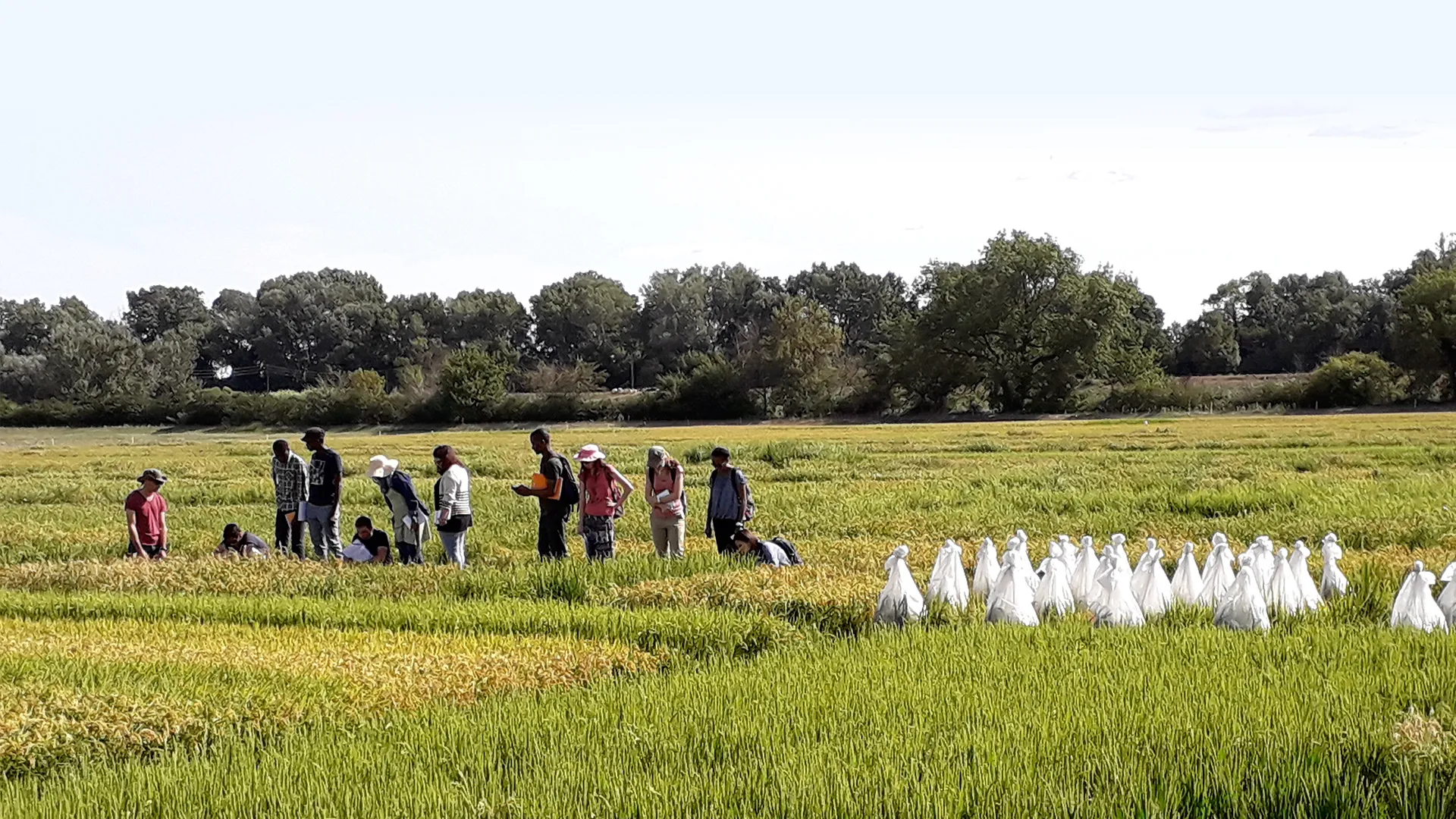General theme of the course
Modern agro-ecosystem management must resolve the potentially conflicting objectives of short-term, intensive production and long-term sustainability whilst simultaneously reducing negative environmental impacts. This course aims at providing students with the key theoretical background elements needed to comprehend and assess the agro-ecosystem within an evolutionary framework.
Relevant evolutionary concepts will be used to shed light on processes such as: domestication and its impact on cultivated plants; adaptive potential to biotic or abiotic stresses; identification of candidate genes for adaptation; community dynamics influencing host/pathogen, plant/microbiome or arthropod-related interactions; the spread of invasive species. To achieve this goal, students will be introduced to the essential theoretical background from population genetics, molecular evolution and phylogeny, as well as community dynamics and interactions.
- Reference of the course: Plant Science UE3. Level: 400
- Admission
- Europe - 3d year of Bachelor’s degree/ 1st year of Master’s degree
- USA - Bachelor Junior students/ Bachelor senior students/ MSc students - Teaching language: English (min B1 level)
- Organization and credits: The course is a full time 4-week-long course. Successful completion of this course brings 7 ECTS credits
- Requirements: Basic knowledge in Mendelian genetics, General concepts of molecular Biology (meiosis, recombination), Probability (mean, variance, binomial distribution) and Statistics and R (p-value, PCA).
- Grades: The final mark will be a weighted average between an individual exam and a group project.
-
Course content
The course will combine lectures-seminars, tutorials, analyses of real-world case studies and project based learning. Students are required to: attend all classes, tutorials and discussion, develop self-learning, work on a project, and take a final examination.
Tutorials will aim at mastering F-statistics, sequence alignments, advance queries on EnsEMBL and NCBI databases, molecular phylogeny, taxonomic identification as well as understanding the fundaments of tests used to detect selection/adaptation or to characterize microbiomes.
Students are expected to develop their ability to read scientific article and question methodological choices, to apprehend agronomic question in a broader evolutionary framework, to propose biological interpretation based on molecular data analysis and to suggest further analysis to validate those hypotheses, to work with others: being able to emit/accept constructive criticism, being open-minded and inquisitive, being respectful of other point of view, being diligent and punctual.
- First week: Genetic resources in agriculture and conservation biology (molecular diversity): Characterizing genetic/genomic diversity via high-throughput molecular methods, Understanding evolutionary processes shaping allelic distribution, Quantifying molecular diversity, Conducting taxon identification and phylogenetics analyses for diagnostics and classification
- Second week: Molecular breeding, dynamics of adaptation, candidate gene identification (footprints of selection): Establishing a null hypothesis to detect selection for adaptation to biotic and abiotic conditions, Detecting selection at the genome level for adaptation to biotic and abiotic conditions
- Third week: Domestication history, epidemiology, emergence of resistances and geographical expansion (spreading): Understanding how molecular diversity is shaped by organism reproductive traits, Deciphering the history of populations at different time and space scales, Retracing phylogeography and geographical expansion to understand the past and predict the future
- Fourth week: Community evolutionary dynamics (interactions): Understanding co-evolution and how it can be tested, Knowing the importance of soil microbiome and how metagenomics allows to characterize it, Understanding that the plant level is not the sole relevant level
Disciplinary Content Nb of hours Genetics 31 Molecular ecology 9 Evolution and Phylogenetics 9 Multidisciplinary project (data analysis) 20 (+24h personal work) English 7 -
Books and other reading materials
No books have been ordered for this course. All required readings are available as downloads from the Montpellier SupAgro teaching platform. There is no formal reading packet for this course.
-
Final note
We reserve the right to make modifications [additions, deletions, etc.] to the syllabus, assignments, requirements and expectations for this course; any such modifications will be clearly communicated and communicated in a timely way.
Keywords: molecular diversity, evolutionary and selection footprint, co-evolution, barcoding, microbiome
Contacts
L'Institut Agro Montpellier
2 place Pierre Viala
34060 Montpellier - France
Tél. : +33 (0)4 99 61 22 00 Tél. : +33 (0)4 99 61 22 00
Fax : +33 (0)4 99 61 29 00
contact@supagro.fr


















